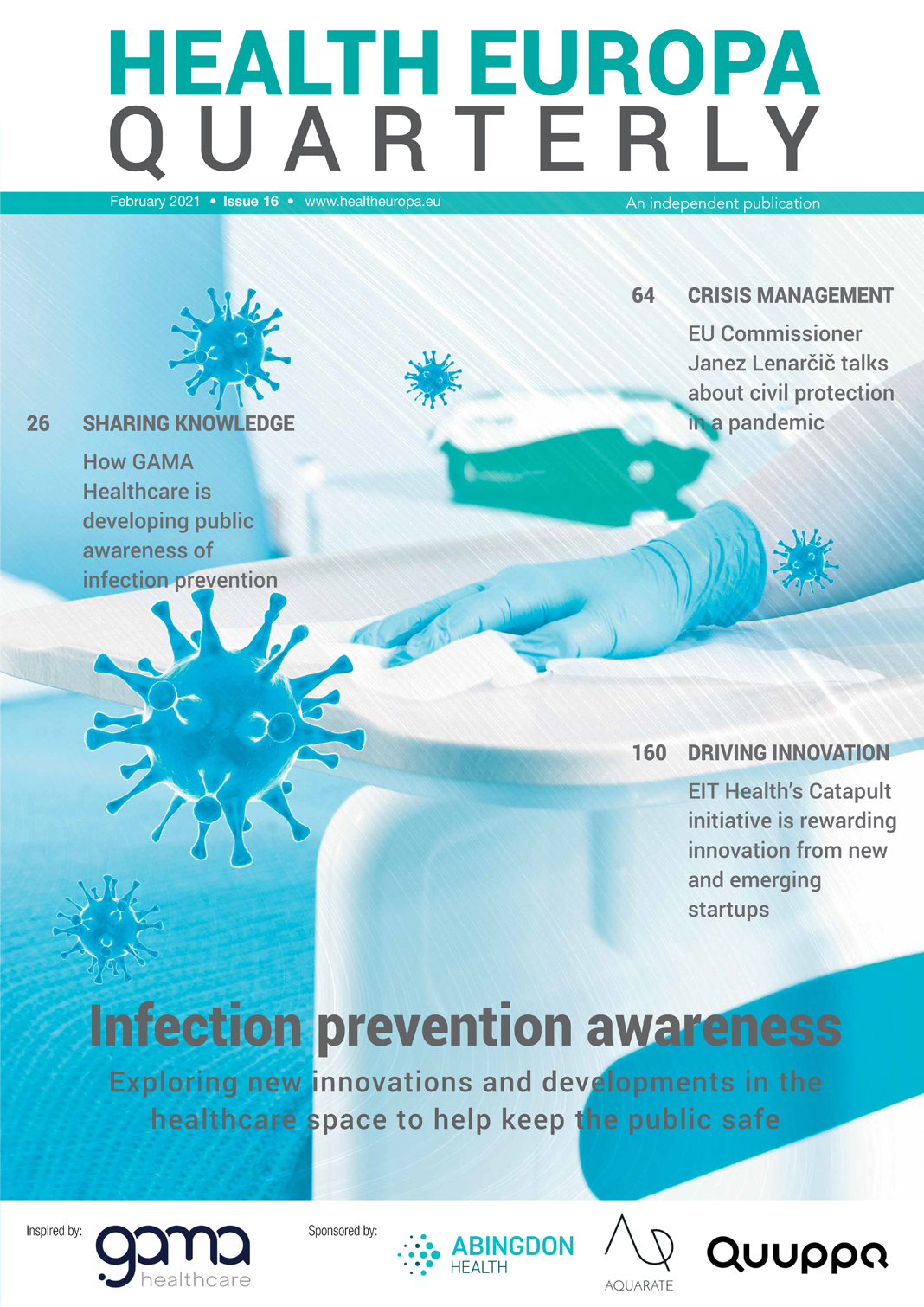Welcome to Health Europa Quarterly issue 16, which explores the secondary issues adjacent to the COVID-19 pandemic, from the welfare and wellbeing of doctors to new innovations in infection prevention to the continued underlying threat of antimicrobial resistance.
This issue is introduced by Janez Lenarčič, the EU’s Commissioner for Crisis Management, who highlights the lessons we must take from COVID-19 in order to be better prepared for later outbreaks of disease.
Issue 16 opens with an interview with the World Health Organization’s (WHO) Tarik Jašarević, who tells HEQ about the aims and implementation of the groundbreaking WHO ACT-Accelerator programme to combat COVID-19 from every angle. We learn about the neurological damage caused by COVID-19 from Dr Rhys Thomas of the research team behind the COVID-19 Clinical Neuroscience Study, while Jonny Jarron of the Scottish Mental Health Strategy and Co-ordination Unit showcases the Scottish government’s Clear Your Head mental wellbeing campaign; and Drs Natalie Ashburner and Richard Gilpin of the Doctors’ Association UK continue the theme of mental health awareness with an article about the burden on healthcare staff of working through a global pandemic.
We are now around a year into the pandemic and the initial shock has more or less worn off, replaced in some cases with burnout and fatigue; in others, with the growing realisation that other healthcare concerns are at risk of being overlooked in the drive to combat COVID-19. One of the key conditions being referred to as a potential ‘second pandemic’ is antimicrobial resistance (AMR), which causes an estimated 1.5 million deaths around the world annually: we learn more about the dangers of AMR and the urgent need for further research and funding from Arlene Brailey, Patient Support Officer at Antibiotic Research UK; Dr Ghada Zoubiane and Georgiana-Simona Baciu of the International Centre for AMR Solutions; and Mariano Votta and Neda Milevska-Kostova of our media partner the Active Citizenship Network.
With research and innovation focusing in particular on solutions to infection prevention and control, we hear from Dr Jeffrey Siewerdsen at Johns Hopkins University and Dr Sven Einfeldt of the Ferdinand-Braun-Institut in Berlin about new developments in UVC disinfection, which has the potential to lead the future of infection control technologies. Elsewhere in the innovation space, Kurt Höller at EIT Health takes us through advances in healthcare technology and Tiyga Health’s Katrina Delargy discusses the growing role of digital communications in care and treatment.
Following condition-specific articles from, among others, the European Brain Council, the Royal College of Pathologists, and the International Osteoporosis Foundation, we learn about first aid training from the British Red Cross and the limits of disability policy from the European Union of the Deaf. Our issue ends with our Medical Cannabis Network supplement, which looks at the cannabis sector around the world. Introduced by the celebrated patients’ rights campaigner Hannah Deacon, MCN features contributions from global cannabis representatives including Medicinal Cannabis Europe, the Cannabis Council of Canada, and Medical Cannabis Research Australia.
Rosemary Lobley
Editor
Health Europa Quarterly



